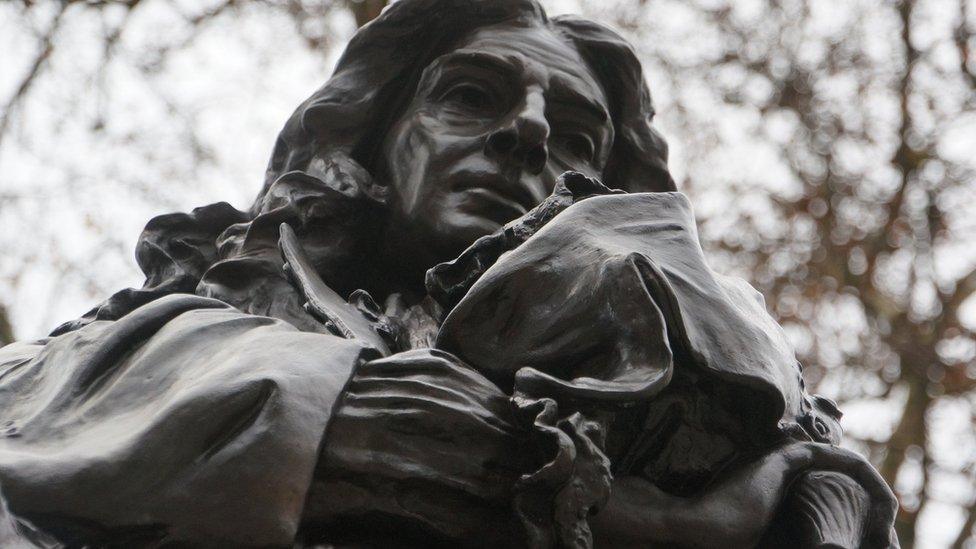Bristol exhibit reveals 'empowering' slave trade stories
- Published
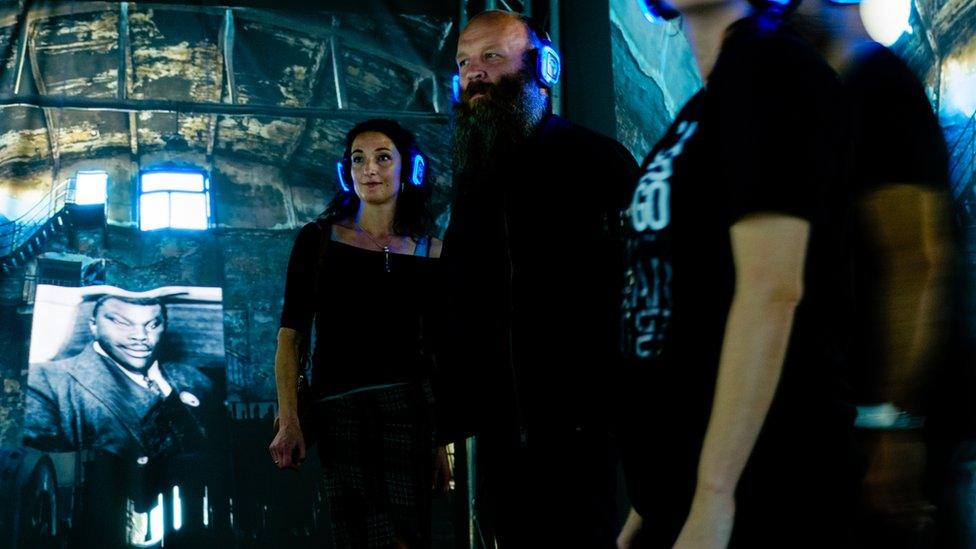
CARGO aims to provide an "empowering alternative narrative to the transatlantic slave trade"
A new interactive exhibition aims to present an "empowering narrative" for the transatlantic slave trade.
CARGO centres on poems written by Bristol artist Lawrence Hoo who wants to stop the city being "stuck in a rut" over its slave history.
The poet worked with Massive Attack on the accompanying soundtrack.
Bristol's prestige and wealth in the 17th Century came largely as a result of slave traders such as Edward Colston.
Mr Hoo said he wants to provide a historical account of the slave trade alongside the accomplishments that led to "the freedoms many of us share today".
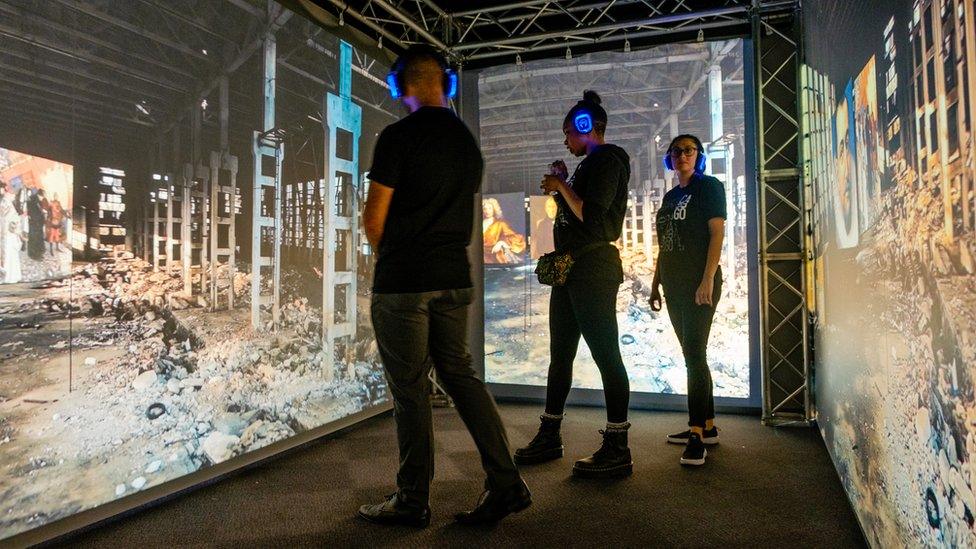
The art project uses a combination of 20ft and 40ft shipping containers
"Nanny of The Maroons, Mary Seacole, and Marcus Garvey all worked within unimaginable confines, but continued to inspire and empower".
These historical figures inspired and are included in the exhibition, although Mary Seacole and Marcus Garvey came to prominence after the abolition of slavery in 1833.
Mr Hoo said people from the African diaspora should not "just" be seen as "victims and Europeans as heroes".
The "African diaspora also has heroes" and they provide an "empowering narrative" covering one of the "most dehumanising" periods in modern history.
The art project will use a combination of 20ft and 40ft shipping containers arranged in a rectangle and connected to form a continuous loop.
Imagery will be projected onto the inside of the containers and participants will travel through the containers whilst wearing headphones playing Mr Hoo's poems.
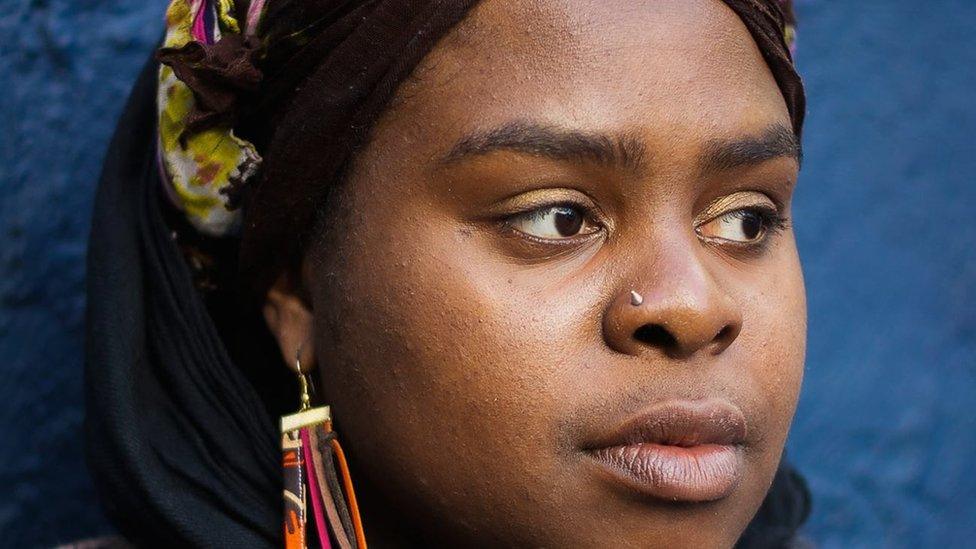
Muneera Williams, Born in Bristol of Jamaican Heritage is one of the Spoken word artists featured in the exhibition.
Tanya Muneera Williams, one of the four artists who feature in the exhibit, said it raised thoughts on Bristol as a "complex" city with a "lack of equity historically and presently".
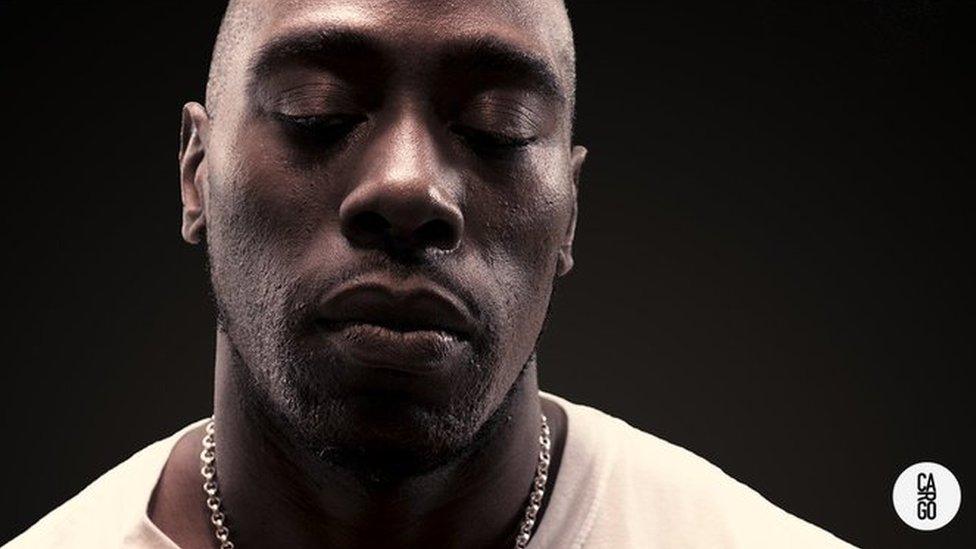
Four different spoken word artists took part in the exhibition to voice the words of Lawrence Hoo's poem including Bristol artist, Zeeks
Bristol artist Zeeks also features in the exhibition said its historical narrative is something the "world needs to have in its life".
He added: "I really enjoyed getting into the right mindset and energy to deliver some of Lawrence's poems to camera."
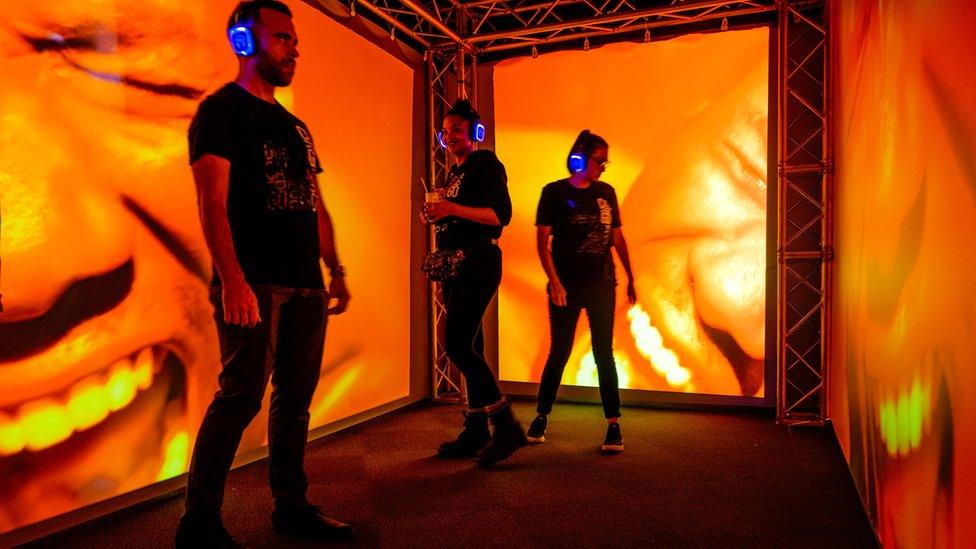
CARGO will be exhibited outside of Bristol's City Hall and it is hoped the exhibit will also be shown in other cities in the UK
The exhibit will be co-directed by Tom Morris, director of the National Theatre and Bristol Old Vic and will open in 2020.
- Published25 March 2019
